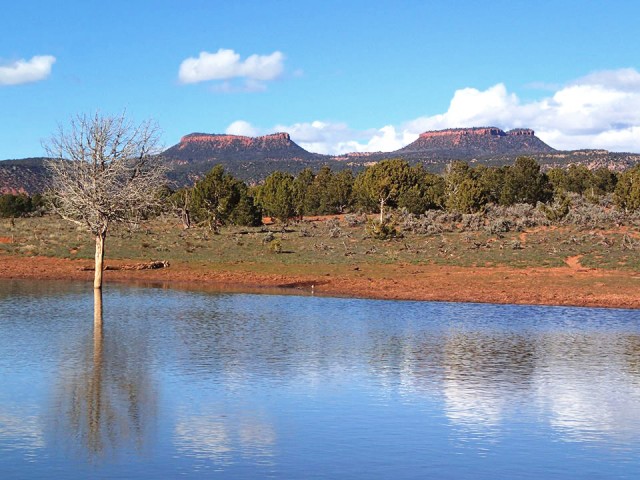- Home
- >
- Press Releases/Announcements
- >
- Archaeology Southwest Stands with the Antiquities ...
Statement by Archaeology Southwest President and CEO William Doelle
(April 26, 2017)—Archaeology Southwest denounces today’s executive order by President Trump, which requires the Department of the Interior to review national monument designations since 1996 that are greater than 100,000 acres or determined to be lacking in adequate public consultation.
Although the review, if done in good faith, would almost certainly reveal broad support for our national monuments, Trump’s statement claimed abuses that he will correct.
Given that context, we view this order as an unconscionable attack on our nation’s public lands and waters. It assails the fundamentally American concept of preserving culturally and naturally rich places for the benefit and enjoyment of all Americans.
First and foremost, from our perspective as Preservation Archaeologists, this is an astonishing act of disrespect toward American Indian Tribes, to their history on this continent since time immemorial, to their sacred sites, and to their sovereignty. This move disparages the idea that all Americans’ stories on the landscape, and especially those of America’s indigenous peoples, should be recognized, protected, and celebrated in our public lands.
Second, this is an act of profound contempt toward the Antiquities Act of 1906, to its visionary legacy for preserving and protecting the lands and stories that make our country great, and to the very concepts that the Act asserts—that there is broad public interest in the places and artifacts that tell our human story, that these deserve protection, and that, in addition to scientific value, there is value in interpreting these places and their meaning for humankind. For these very reasons, there has been more than a century of bipartisan support for the Antiquities Act: eight Republican and eight Democrat presidents have protected America’s natural and cultural heritage with the Act since President Theodore Roosevelt signed it into law. Landscape-scale protection has occurred throughout the history of the Act.
Third, this executive order disregards Americans’ overwhelming support for public lands and waters and for national parks. A Hart Research poll conducted for the Center for American Progress in 2014 showed that 90% of voters supported presidential proposals to protect some public lands and waters as parks, wildlife refuges, and wilderness. A Conservation in the West poll undertaken by Colorado College this year showed that, among Western voters, 80% favored keeping protections for existing monuments. Some of this support is rooted in the documented economic benefits national parks and monuments and other kinds of public lands provide to surrounding communities. In the American West, these benefits often accrue to rural communities.

Moreover, the Obama administration’s national monument designations were community-driven initiatives—significantly, including tribal communities—informed by intensive public meetings and robust stakeholder outreach. America’s national monuments and the plans guiding their management are based on well-documented facts about the cultural and natural resources under the monument’s protection. Today, Congressman Raúl M. Grijalva stated, “As we saw with the widely covered planning process for Bears Ears National Monument, national monuments are established after years of close federal consultation with multiple local stakeholders. They are the product of careful consideration and extraordinary scientific and historical analysis.” We can affirm from our direct involvement that this is the case for Bears Ears.
Finally, there are more than 150 monuments that protect America’s heritage for future generations. No president has attempted to revoke a predecessor’s monument designation, even when there had been some public disagreement over the designation. No president has the legal authority to eliminate or significantly alter a national park or national monument—on this, natural resources law scholars agree. Furthermore, designations under the Antiquities Act, including some now under review, have already survived legal challenges.
Be assured that Archaeology Southwest is fully and actively committed to defending the Antiquities Act and our national monuments as originally designated. Specifically, we will continue to work with a coalition of sovereign tribal nations, stakeholders, and supporters who share our deep respect for the sacred Native American sites and cultural landscapes in Western national monuments. By fighting for enduring protection for our public lands, and our national monuments in particular, we respect the lives of those who came before, their descendants, and ourselves as Americans.
About Archaeology Southwest
Archaeology Southwest is a private 501(c)(3) nonprofit organization based in Tucson, Arizona, that explores and protects the places of our past across the American Southwest and Mexican Northwest. For three decades, Archaeology Southwest has fostered meaningful connections to the past and respectfully safeguarded its irreplaceable resources. Learn more at www.archaeologysouthwest.org.
Read our letter to Secretary Zinke dated March 3, 2017, here (opens as a PDF).
###